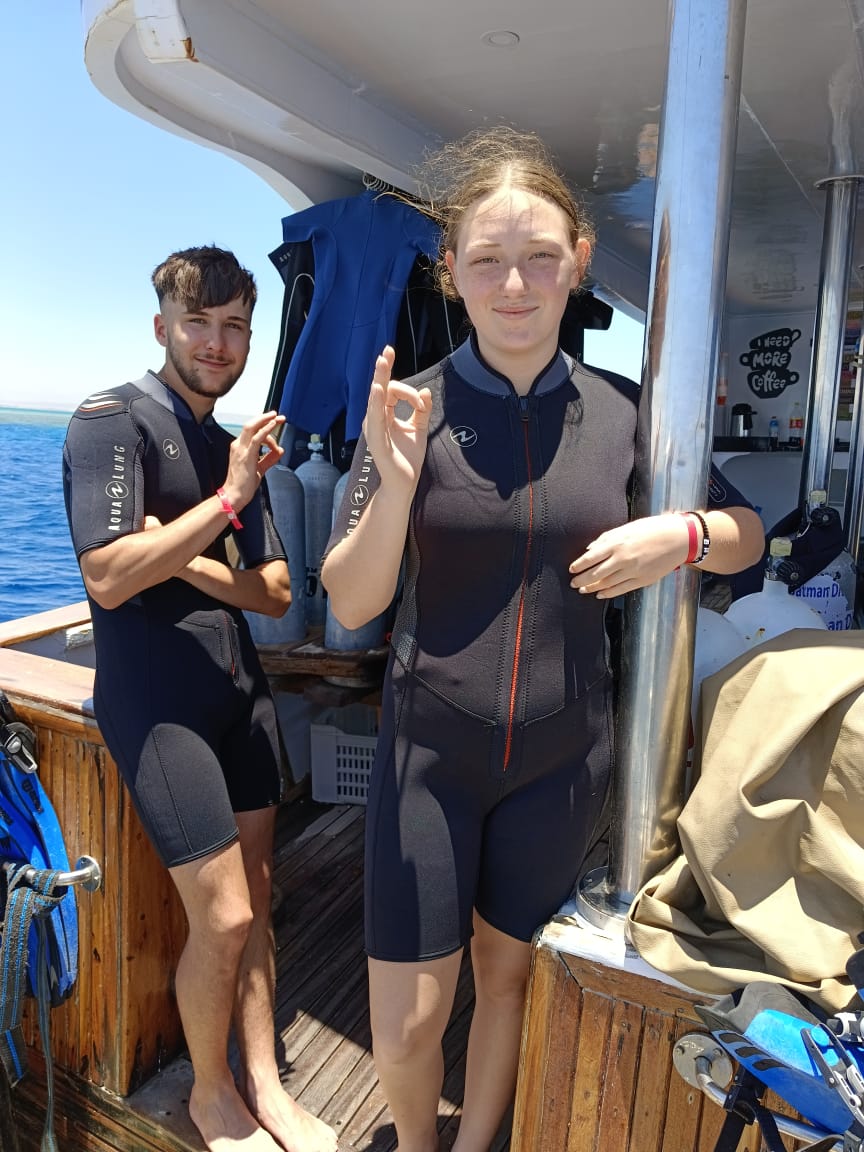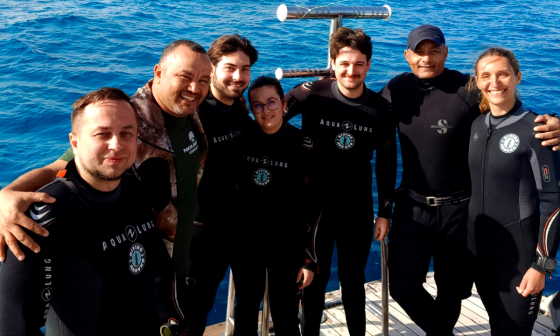Hurghada diving offers some of the world’s most spectacular underwater experiences, yet many newcomers discover that the reality differs significantly from their expectations. While certification courses provide fundamental knowledge, numerous practical insights remain unmentioned until you’re actually submerged in diving Hurghada waters. This comprehensive guide reveals ten essential tips that experienced divers wish they’d known before their first Hurghada diving adventure, ensuring your underwater exploration becomes both safer and more enjoyable.

The Red Sea’s unique marine ecosystem, combined with Hurghada’s accessibility and year-round diving conditions, makes it one of the world’s premier diving destinations. However, the combination of warm water, strong currents, and diverse marine life creates specific challenges that differ from other popular diving locations worldwide. Understanding these nuances before your first diving Hurghada experience can transform a potentially overwhelming experience into an unforgettable adventure.
Top 10 Tips Beginner Hurghada Scuba Diving
- Why Hurghada Diving Stands Apart from Other Destinations
- Essential Pre-Dive Preparation Often Overlooked
- Mastering Buoyancy Control in Hurghada’s Delicate Ecosystem
- Navigation Skills for Hurghada’s Diverse Dive Sites
- Marine Life Interaction Protocols in Hurghada Waters
- Emergency Response and Safety Protocols in Hurghada
- Environmental Considerations and Sustainable Diving Practices
- Advanced Diving Techniques for Experienced Beginners
- Dive Site Selection and Planning for Beginners
- Equipment Maintenance and Troubleshooting for Reliable Performance
- Understanding Local Diving Culture and Regulations
- Budget Planning and Cost Management for Hurghada Diving
- Health and Fitness Considerations for Safe Diving
- Photography and Videography Tips for Underwater Documentation
- Weather Monitoring and Dive Planning Strategies
- Enhancing Your Hurghada Diving Experience
Why Hurghada Diving Stands Apart from Other Destinations
Hurghada diving presents unique characteristics that distinguish it from diving experiences in the Caribbean, Mediterranean, or Pacific regions. The Red Sea’s geological history has created exceptionally clear waters with visibility often exceeding 30 meters, making it ideal for underwater photography and marine observation. However, this clarity also creates optical illusions that can disorient new divers.
Firstly, the water temperature in Hurghada ranges from 20°C (68°F) in winter to 29°C (84°F) in summer, requiring different thermal protection strategies than temperate waters. Moreover, the Red Sea’s high salinity affects buoyancy calculations and equipment performance in ways that many beginners don’t anticipate.
Hurghada’s marine biodiversity includes species rarely encountered elsewhere, such as Napoleon wrasse, reef sharks, and schooling hammerheads. While this enhances the diving experience, it also means that divers must understand specific behavioral patterns and safety protocols unique to Red Sea marine life.
Furthermore, the geological features of the Red Sea create distinctive dive sites. Fringing reefs, drop-offs, and coral gardens provide varied underwater landscapes, each requiring different diving techniques and safety considerations. The coral formations here are particularly fragile, making buoyancy control not just a safety issue but also an environmental responsibility.
Essential Pre-Dive Preparation Often Overlooked
Proper preparation begins long before you enter the water. Many beginners focus solely on equipment checks, overlooking crucial environmental and physiological preparations that significantly impact dive quality. Understanding Hurghada’s specific conditions allows divers to prepare appropriately for the unique challenges they’ll encounter.
Equipment Selection and Customization for Hurghada Conditions
While rental equipment suffices for certification courses, investing in properly fitted personal gear enhances comfort and safety during Hurghada diving adventures. The mask fitting process deserves particular attention, as an ill-fitting mask causes constant leakage and fogging throughout the dive.
Wetsuit selection requires consideration of both thermal protection and mobility. Hurghada’s warm waters might suggest minimal exposure protection, yet strong currents and extended surface intervals can lead to significant heat loss. A 3mm shorty wetsuit often provides optimal balance between thermal protection and comfort for most divers.
Additionally, fins require careful selection based on foot size and diving style. Hurghada’s sandy bottom conditions favor open-heel fins with adjustable straps over full-foot designs. Besides this, consider the specific diving techniques you’ll employ, as technical diving often requires different fin styles than recreational reef exploration.
Physical and Mental Preparation for Red Sea Diving
Hurghada diving conditions demand physical fitness levels exceeding those required for pool-based certification courses. Strong currents, particularly around offshore reefs, challenge even experienced divers. Cardiovascular fitness directly impacts air consumption rates and overall dive enjoyment.
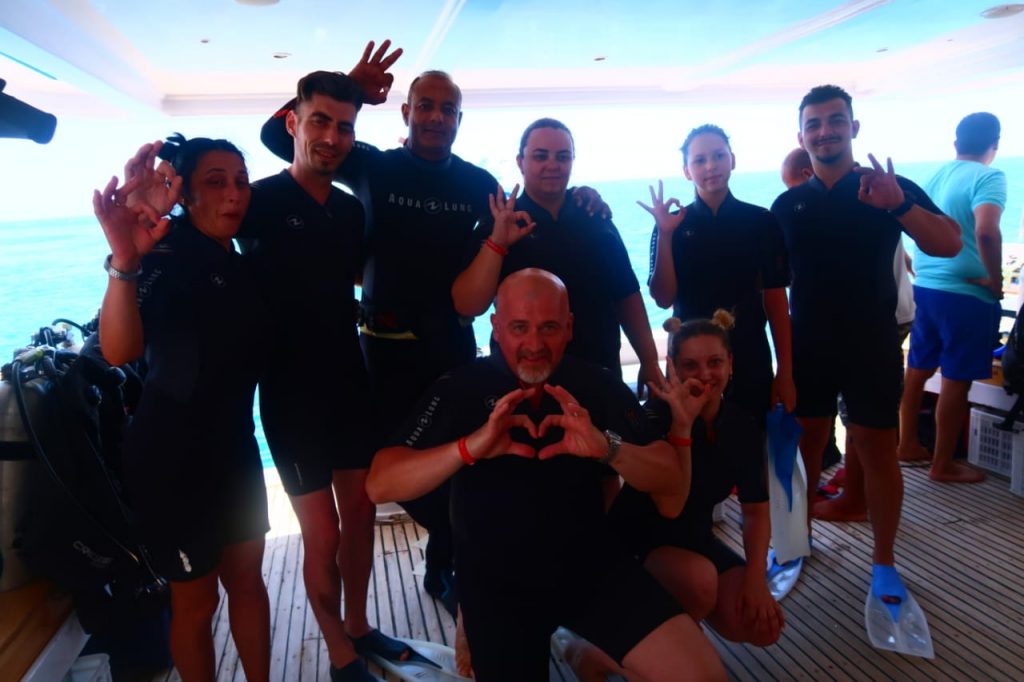
Mental preparation proves equally important. The Red Sea’s vast underwater landscape can trigger feelings of isolation or disorientation in inexperienced divers. Practicing relaxation techniques and visualization exercises before diving helps maintain calm composure underwater.
Moreover, hydration represents another often-overlooked preparation element. Hurghada’s arid climate accelerates dehydration, which directly affects diving performance and safety. Drink water consistently throughout the day, avoiding excessive caffeine or alcohol consumption before diving.
Mastering Buoyancy Control in Hurghada’s Delicate Ecosystem

Buoyancy control separates competent divers from beginners, particularly in Hurghada’s delicate coral reef environments. Poor buoyancy skills damage fragile coral formations while compromising diver safety and comfort. Developing precise buoyancy requires understanding how Red Sea conditions affect traditional buoyancy techniques.
Weight System Optimization for Red Sea Conditions
Hurghada’s warm, salty water increases buoyancy compared to other diving destinations. Many beginners arrive over-weighted, leading to constant adjustments and increased air consumption. Proper weighting ensures neutral buoyancy at eye level with nearly empty lungs while maintaining slight positive buoyancy at the surface.
Weight distribution significantly impacts trim and comfort underwater. Traditional weight belt configurations often prove inadequate for Red Sea diving conditions. Consider integrated weight systems or weight pockets that allow fine-tuning distribution throughout the dive.
Breathing Technique Refinement for Better Control
Effective buoyancy control requires consistent, relaxed breathing patterns. Many divers unconsciously hold their breath or breathe erratically when encountering marine life or navigating challenging conditions. Practice maintaining steady, deep breathing while focusing on slow, deliberate movements.
The Red Sea’s exceptional visibility creates optical illusions that affect depth perception and buoyancy judgment. Experienced divers learn to rely on instruments and physical sensations rather than visual cues alone.
Hurghada offers access to various dive site types, each requiring specific navigation approaches. Fringing reefs, wall dives, and wreck sites present different challenges that demand adaptable navigation skills. Developing proficiency across multiple navigation techniques enhances safety and enjoyment during diving Hurghada experiences.
Red Sea conditions often limit visibility to less than optimal levels, particularly during winter months or after strong winds. Natural navigation using underwater topography becomes crucial when electronic devices fail or visibility deteriorates unexpectedly.
Current awareness represents another essential navigation skill. Hurghada’s strong currents create drift diving opportunities that require understanding current patterns and exit strategies. Monitor current direction and strength throughout the dive, adjusting position and air consumption accordingly.
While natural navigation proves invaluable, compass skills provide reliable backup during challenging conditions. Practice compass navigation in controlled environments before attempting complex navigation during diving Hurghada sessions. Understand how magnetic variation affects compass readings in Red Sea locations.
Emergency ascent procedures require specific navigation considerations. Plan alternate routes and emergency procedures before each dive, considering potential equipment failures or medical emergencies. Regular practice of emergency procedures builds muscle memory essential during stressful situations.
Marine Life Interaction Protocols in Hurghada Waters
Hurghada’s rich marine biodiversity creates unique interaction opportunities that require specific protocols and safety considerations. Understanding marine behavior patterns enhances both diver safety and marine conservation efforts throughout diving Hurghada adventures.
Safe Marine Life Encounters in the Red Sea
Many marine species encountered during Hurghada diving sessions exhibit curious or defensive behaviors that can surprise inexperienced divers. Lionfish, while beautiful, possess venomous spines requiring careful observation from safe distances. Similarly, moray eels often appear aggressive but typically retreat when divers maintain respectful distances.
Photography and videography activities can inadvertently stress marine life or damage coral formations. Use proper underwater photography techniques that minimize disturbance to marine ecosystems while capturing memorable images.
Conservation Awareness for Responsible Diving
Hurghada’s coral reefs face various environmental pressures that divers can help mitigate through responsible diving practices. Avoid touching coral formations, as even brief contact damages delicate polyps and affects long-term reef health.
Participate in citizen science programs that monitor marine life populations and coral reef health throughout the Red Sea region. Many dive centers offer opportunities for divers to contribute to ongoing research and conservation efforts.
Emergency Response and Safety Protocols in Hurghada

Emergency situations during Hurghada diving sessions require immediate, appropriate responses that differ from standard recreational diving protocols. Understanding local emergency procedures and communication systems enhances safety for all participants.
Emergency Communication Systems for Coastal Diving
Hurghada’s dive sites often lie beyond visual range of shore-based rescue services, requiring reliable emergency communication equipment. Surface marker buoys with integrated emergency signaling devices provide essential communication links during surface intervals or emergency ascents.
Dive boat crews maintain specific emergency procedures that may differ from land-based diving operations. Familiarize yourself with boat-specific emergency protocols before departing harbor, including emergency ascent procedures and medical emergency responses.

Medical Emergency Preparedness in Egypt
Decompression sickness and other diving-related medical emergencies require immediate access to hyperbaric treatment facilities. Hurghada maintains several hyperbaric chambers, yet transportation times vary significantly based on dive site location and emergency severity.
Emergency oxygen administration represents a crucial first aid skill that significantly improves outcomes during diving-related medical emergencies. Many dive centers provide emergency oxygen equipment, yet divers should understand proper administration techniques before encountering actual emergencies.
Environmental Considerations and Sustainable Diving Practices
Hurghada’s marine environment faces various pressures that responsible diving practices can help mitigate. Understanding environmental impacts and adopting sustainable diving behaviors contributes to long-term reef health and marine biodiversity conservation.
Coral Reef Conservation in the Red Sea
Coral reefs throughout the Red Sea region face threats from climate change, pollution, and physical damage. Divers can minimize their impact through proper buoyancy control, equipment configuration, and behavioral protocols that protect delicate coral formations.

Marine protected areas throughout Hurghada implement specific regulations designed to preserve marine ecosystems. Respect these regulations by following established diving guidelines and reporting violations to appropriate authorities.
Waste Management and Pollution Prevention
Underwater litter and pollution affect marine life throughout Hurghada’s diving areas. Participate in organized cleanup dives or remove small debris items encountered during regular diving activities.
Sunscreen chemicals pose significant threats to coral reef health, particularly in shallow water environments. Consider using reef-safe sunscreen products or wearing protective clothing that minimizes chemical exposure to marine ecosystems.
Advanced Diving Techniques for Experienced Beginners
After mastering basic diving skills, experienced beginners can explore advanced techniques that enhance Hurghada diving experiences while maintaining safety standards. These techniques require additional training and practice but significantly expand diving capabilities.
Drift Diving Proficiency in Strong Currents

Hurghada’s strong currents create excellent drift diving opportunities that require specific skills and equipment configurations. Master current reading techniques and surface interval procedures that ensure safe navigation through drift diving scenarios.
Emergency procedures during drift dives differ significantly from static diving situations. Practice emergency ascent techniques and surface signaling procedures specifically designed for current-affected environments.
Night Diving Preparation for Unique Experiences
Night diving in Hurghada reveals entirely different marine ecosystems and behaviors compared to daytime diving experiences. Proper lighting equipment and buddy communication protocols ensure safe navigation through dark underwater environments.

Marine life activity patterns change dramatically during nighttime hours, creating unique photographic opportunities and wildlife encounters. Understanding nocturnal marine behaviors enhances both safety and enjoyment during night diving activities.
Dive Site Selection and Planning for Beginners
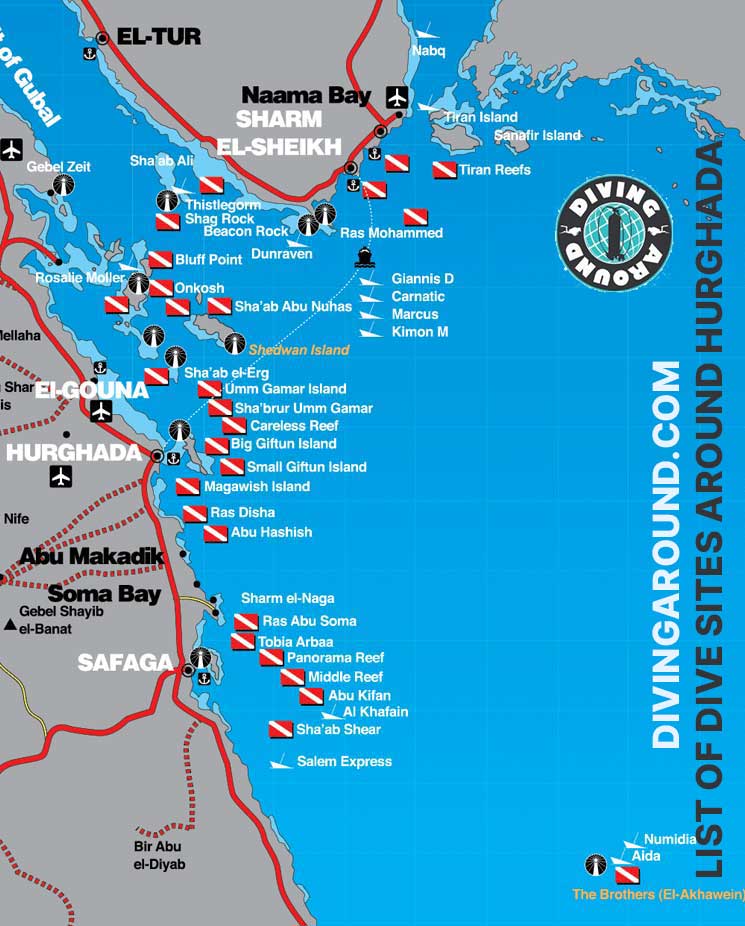
Hurghada offers diverse dive sites ranging from shallow reef exploration to deep wall diving and wreck penetration. Proper site selection based on experience level, weather conditions, and personal interests maximizes diving enjoyment while maintaining safety standards.
Weather and Seasonal Considerations for Optimal Diving
Hurghada’s climate affects diving conditions throughout the year, with summer months offering warm water temperatures but increased surface heat stress. Winter diving provides cooler temperatures but requires additional thermal protection and equipment considerations.

Wind patterns significantly affect surface conditions and underwater visibility. Monitor weather forecasts and local diving reports before selecting specific dive sites or scheduling diving activities.
Depth and Difficulty Planning for Safe Progression
Beginner divers should start with shallow, protected sites that allow skill development without excessive environmental challenges. Gradually progress to more challenging sites as experience and confidence levels increase.
Deep diving requires specific training and equipment considerations that exceed basic recreational diving certifications. Plan deep diving activities with experienced guides and proper safety equipment support.
Equipment Maintenance and Troubleshooting for Reliable Performance
Proper equipment maintenance ensures reliable performance during Hurghada diving sessions while extending equipment lifespan and reducing replacement costs. Understanding basic troubleshooting techniques allows divers to address minor equipment issues before they become safety concerns.
Regular Maintenance Schedules for Salt Water Exposure
Regulator maintenance requires specific procedures and schedules that vary based on usage frequency and environmental conditions. Salt water exposure accelerates corrosion and wear, necessitating more frequent maintenance than freshwater diving equipment.
BCD maintenance includes regular bladder inspections, valve cleaning, and inflation system checks that prevent potentially dangerous equipment failures. Follow manufacturer recommendations while considering Hurghada’s specific environmental conditions.
Common Equipment Issues and Solutions
Mask fogging represents one of the most common issues encountered during diving Hurghada sessions. Proper mask preparation and anti-fog treatments prevent fogging while maintaining clear vision throughout the dive.
Regulator free-flow incidents occur more frequently in warm water conditions due to thermal expansion and salt crystal formation. Understanding prevention techniques and emergency procedures ensures safe resolution of free-flow situations.
Understanding Local Diving Culture and Regulations
Hurghada’s diving community operates within specific cultural and regulatory frameworks that differ from other international diving destinations. Understanding these local aspects enhances both diving experiences and safety while respecting local customs and regulations.
Egyptian Diving Regulations and Permits
Egypt maintains specific diving regulations that govern recreational diving activities along the Red Sea coast. While these regulations may seem restrictive to international divers, they’re designed to protect both divers and marine ecosystems.
Local dive centers typically handle regulatory compliance for visiting divers, yet understanding basic requirements helps avoid potential complications during diving Hurghada experiences. Some sites require specific permits or guided diving, particularly within marine protected areas.
Cultural Considerations for International Divers
Hurghada’s diving community includes diverse cultural backgrounds, from local Egyptian dive professionals to international visitors from around the world. Understanding basic cultural norms and communication styles enhances interactions with local dive staff and fellow divers.
Language barriers can create safety concerns during diving activities. While many dive centers employ English-speaking staff, learning basic Arabic phrases or carrying translation tools proves beneficial during emergency situations or equipment rentals.
Budget Planning and Cost Management for Hurghada Diving
Hurghada diving costs vary significantly based on dive center selection, equipment choices, and diving frequency. Proper budget planning ensures enjoyable diving experiences without financial stress or compromised safety standards.
Equipment Rental vs. Purchase Decisions
Many beginners question whether to rent or purchase diving equipment for Hurghada diving adventures. Rental equipment proves cost-effective for occasional divers, yet frequent diving justifies equipment investments.
Personal equipment ownership provides consistency and comfort that enhances diving experiences, particularly for mask and fins that require precise fitting. However, major equipment purchases require significant initial investments that may not suit all budgets.

Dive Package Selection and Value Optimization
Hurghada dive centers offer various package options ranging from single dives to multi-day packages. Understanding package inclusions and exclusions helps optimize value while ensuring appropriate diving experiences.
Multi-dive packages often provide better value per dive, yet require commitment to specific diving schedules. Flexible packages accommodate changing weather conditions and personal preferences while maintaining reasonable costs.
Health and Fitness Considerations for Safe Diving
Hurghada diving conditions demand specific health and fitness standards that exceed basic recreational activity requirements. Understanding these demands helps ensure safe, enjoyable diving experiences while minimizing medical risks.
Medical Clearance and Health Assessments
Certain medical conditions contraindicate safe diving activities, including heart conditions, respiratory issues, and neurological disorders. Obtain proper medical clearance before engaging in Hurghada diving activities, particularly if you have pre-existing health conditions.
Regular health assessments help identify potential diving contraindications while ensuring continued diving safety throughout your diving career. Many dive centers require medical statements for divers over specific ages or with health concerns.
Fitness Training and Conditioning for Optimal Performance
Hurghada’s strong currents and extended diving sessions demand cardiovascular fitness levels exceeding those required for pool-based diving. Regular aerobic exercise improves air consumption rates and overall diving endurance.
Strength training enhances diving performance by improving equipment handling capabilities and reducing fatigue during challenging diving conditions. Focus on core strength and upper body conditioning that directly benefits diving activities.
Photography and Videography Tips for Underwater Documentation
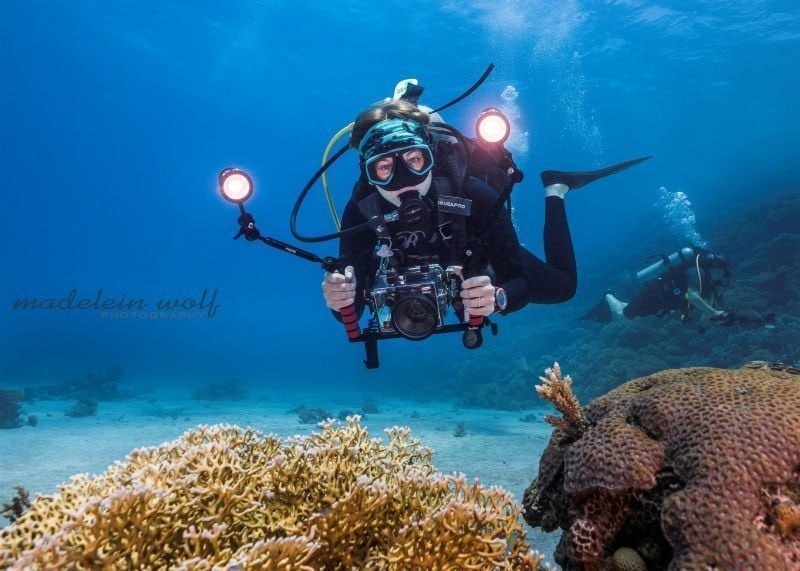
Hurghada’s spectacular marine life and coral formations create exceptional opportunities for underwater photography and videography. However, capturing quality images requires specific techniques and equipment considerations that many beginners overlook.
Camera Equipment Selection for Different Budgets
Underwater photography equipment ranges from affordable compact cameras to professional-grade systems costing thousands of dollars. Determine your photography goals and budget before selecting specific equipment for Hurghada diving sessions.
Compact cameras with underwater housings provide excellent image quality while remaining affordable for most divers. However, they require specific handling techniques and maintenance considerations that differ from traditional underwater cameras.
Composition and Lighting Techniques for Red Sea Subjects
Hurghada’s clear waters and abundant marine life create unique photographic opportunities that require specific composition and lighting techniques. Understanding natural light patterns and marine behavior enhances image quality while minimizing disturbance to marine ecosystems.
Macro photography proves particularly rewarding in Hurghada’s diverse marine environments, revealing intricate details of small marine creatures and coral formations. However, macro techniques require specific focusing skills and equipment configurations that differ from wide-angle underwater photography.
Weather Monitoring and Dive Planning Strategies

Hurghada’s weather patterns significantly affect diving conditions throughout the year, requiring careful monitoring and adaptive planning for optimal diving experiences. Understanding weather impacts helps maximize diving opportunities while maintaining safety standards.
Wind and Wave Conditions Impact on Dive Sites
Hurghada’s coastal geography creates varying wind and wave conditions that affect different dive sites differently. Offshore reefs often provide calmer conditions during onshore winds, while nearshore sites may become challenging during specific weather patterns.
Wave height and period directly impact diving safety and comfort, particularly during boat entries and surface intervals. Monitor local weather forecasts and marine conditions before selecting specific dive sites or scheduling diving activities.
Seasonal Variations and Optimal Diving Windows
Hurghada’s diving conditions vary significantly throughout the year, with different seasons offering specific advantages and challenges. Summer months provide warm water temperatures but may experience increased surface heat stress and reduced visibility.
Winter diving offers cooler temperatures and often improved visibility, yet requires additional thermal protection and equipment considerations. Understanding seasonal patterns helps optimize diving schedules while ensuring comfortable, safe diving experiences.
Enhancing Your Hurghada Diving Experience
Hurghada diving offers unparalleled opportunities to explore one of the world’s most biodiverse marine environments. Success in these waters requires understanding unique environmental conditions, mastering specific diving techniques, and maintaining responsible environmental practices throughout all diving activities.
Beginner divers who invest time in proper preparation, skill development, and environmental awareness create foundations for lifelong diving enjoyment while contributing to marine conservation efforts. The Red Sea’s exceptional diving conditions reward careful preparation and responsible diving practices with unforgettable underwater experiences.
Remember that diving proficiency develops through consistent practice and ongoing education. Each diving Hurghada session provides opportunities to refine skills, expand knowledge, and deepen appreciation for the incredible marine ecosystems that make this destination world-renowned among diving enthusiasts.
By following these comprehensive tips and maintaining commitment to safe, responsible diving practices, beginners can transform their initial Hurghada diving experiences into launching points for extraordinary underwater adventures that last a lifetime.
Whether you’re planning your first diving Hurghada adventure or seeking to enhance existing skills, these insights provide valuable guidance for safe, enjoyable, and environmentally responsible diving experiences in one of the world’s premier diving destinations. The key lies in proper preparation, continuous learning, and respect for the incredible marine ecosystems that make Hurghada diving such a remarkable experience.
References:
